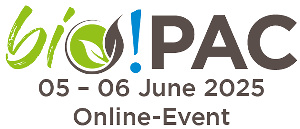The Plastics Industry Trade Association and the SPI Bioplastics Division announced Wednesday that Eastman Kodak was the winner of the 2015 Innovation in Bioplastics Award for its creation of a bio-toner, designed for the electro-photographic printing industry that contains greater than 90 percent biobased and biodegradable materials. The announcement was made at NPE2015: The International Plastics Showcase, hosted at the Orange County Convention Center in Orlando, Fla.
“The term ‘bioplastics’ has quickly grown to become synonymous with innovation, and Eastman Kodak’s creation of a bio-toner that is formulated with biobased and biodegradable materials continues that tradition,” said SPI President and CEO William R. Carteaux. “SPI congratulates Eastman Kodak for winning the 2015 Innovation in Bioplastics Award and thanks all of this year’s entrants for their continuing pursuit of new applications for biobased and biodegradable materials and for supporting the expansion of choices that plastics manufacturers have when it comes to which materials they use in their products.”
Eastman Kodak, headquartered in Rochester, NY, created its award-winning biobased and biodegradable bio-toner using low-carbon-footprint, naturally-advanced Ingeo™ resin, which is comprised of polylactic acid (PLA) and derived from renewable and naturally abundant resources and natural waxes that only contain a small amount of inorganic material. Having such a high percentage of PLA makes the de-inking process for this material much simpler, and the resulting waste material that’s leftover contains mostly lactic acid, which Eastman Kodak noted is a useful feedstock for other plastics products and stands in stark contrast to typical residue leftover after standard de-inking processes.
According to Eastman Kodak, toner resin worth approximately $1 billion is consumed each year in the printing industry for electro-photographic toners. One third of that goes into chemical toner production of which color toner production accounts for 98 percent. Bioresins have limited impact in the industry, accounting for only one percent of color toners and 10 percent of monochrome toners, but developing economically-viable biotoners that can be used at 100 percent incorporation, as Eastman Kodak’s innovative biotoner aims to do, can capture greater market share.
“The Innovation in Bioplastics Award was created to draw attention to solutions that are being created by the industry using bioplastics, and to draw attention to companies that are using bioplastics not just as a novelty, but to actually solve real world issues because of their unique functionality,” said Keith Edwards of BASF, chairman of the SPI Bioplastics Division. “Bioplastics isn’t a revolution, it’s an evolution and Eastman Kodak created a biobased toner that’s very innovative. Because it’s going to be used in a wide array of applications it has the potential to have a huge impact on the marketplace.”
“We congratulate Eastman Kodak because they did something very new and we hope that their success helps other companies look to bioplastics for the solutions they can bring,” Edwards added.
According to Eastman Kodak, their biobased toner will be widely available by May or June this year. For more information on the SPI Bioplastics Division, click here.
About SPI
Founded in 1937, SPI: The Plastics Industry Trade Association promotes growth in the $373 billion U.S. plastics industry. Representing nearly 900 thousand American workers in the third largest U.S. manufacturing industry, SPI delivers legislative and regulatory advocacy, market research, industry promotion and the fostering of business relationships and zero waste strategies. SPI also owns and produces the international NPE trade show. All profits from NPE are reinvested into SPI’s industry services. Find SPI online at www.plasticsindustry.org and www.inthehopper.org.
“From resin suppliers and equipment makers to processors and brand owners, SPI is proud to represent all facets of the U.S. plastics industry,” said William R. Carteaux, president and CEO, SPI. Our most recent economic reports show that the plastics industry as a whole is resilient, and has come through the recession significantly better than other U.S. manufacturing sectors.”
Contact
Jacob Barron
phone: 202-974-5249
eMail: JBarron@plasticsindustry.org
Source
SPI, press release, 2015-03-27.
Supplier
Kodak
NPE The International Plastics Showcase
The Plastics Industry Trade Association (SPI)
Share
Renewable Carbon News – Daily Newsletter
Subscribe to our daily email newsletter – the world's leading newsletter on renewable materials and chemicals












